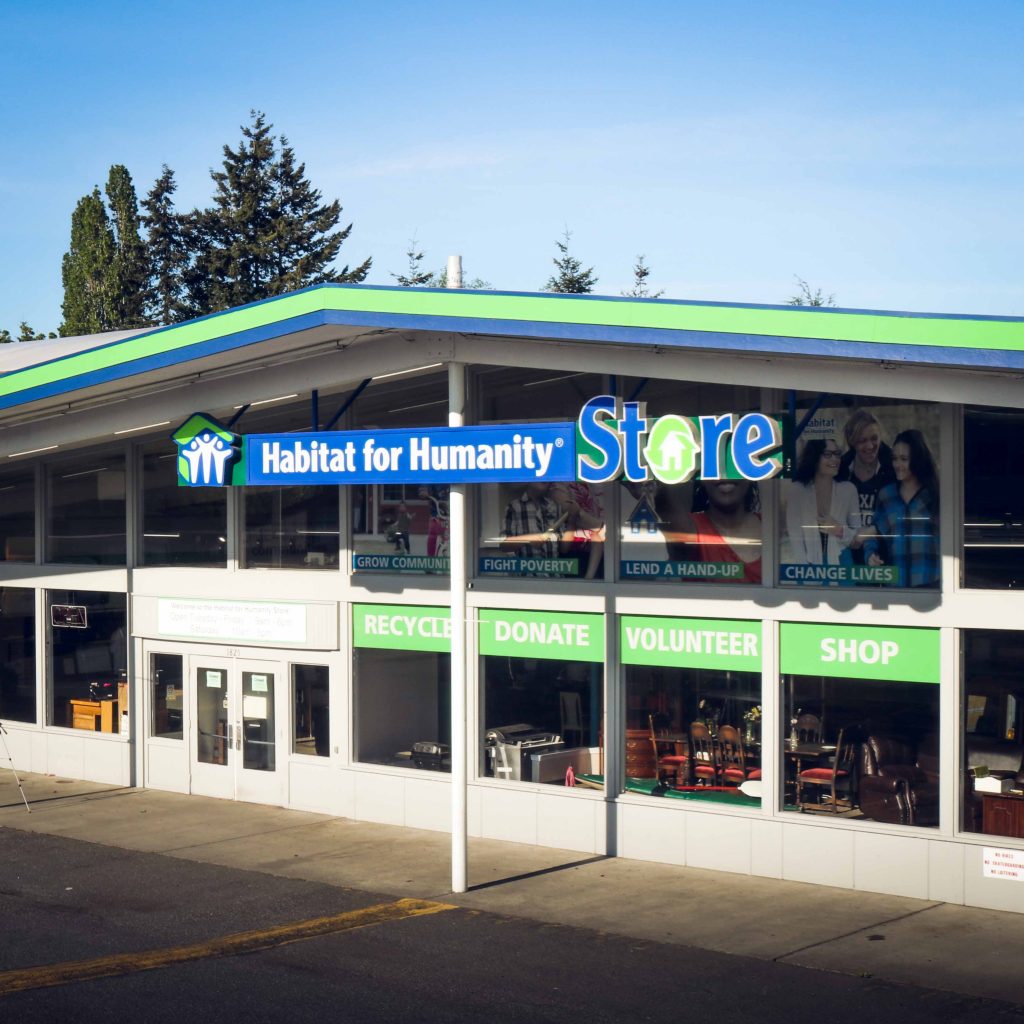The Relationship between Racial Inequities and Housing Policy
Racism has created stark differences in economic security across racial and ethnic groups in our country, and allowed de facto segregation to proliferate in cities and towns across the United States.
Housing is crucial to wealth-building in our economy. As home builders, we must do our part to close the wealth gap created by centuries of racism, and unjust, unconstitutional housing policies. The first step is understanding how these policies have — and continue to impact — our communities.
Racism Manifest in Housing Policy Past
Racism Manifest in Housing Policy Present
Whatcom County History
Whatcom County has its own tainted history of racism, and the lack of racial diversity we see today was no accident. This timeline, created by Western Washington University, describes the initial dispossession of Tribal peoples and exclusion of black settlers, exploitation and subsequent expulsion of various immigrant groups, lynchings and cross-burnings in addition to a significant K.K.K. presence throughout the 1920’s, sundowning in the 1950’s, and much more.
Even today, racist graffiti, propaganda, flyers, and threats appear in our county on a near yearly basis. This is not to mention the food desert in Birchwood – one of the most racially diverse neighborhoods in Bellingham. Furthermore, the Nooksack and Lummi reservations have been long-time food deserts, and, prior to the closure of the Birchwood Albertsons, the Lummi tribe frequently used said store as their primary grocer.
Most relevant to our contemplation is the county’s history of racial covenants, more than 1,500 of which were discovered in a University of Washington study. The impacts of such covenants are arguably apparent in neighborhood demographics today.
Of equal relevance are exclusionary zoning ordinances which concentrate poverty in specific locales, effectively preventing the development of socioeconomically diverse neighborhoods. Low-income families – disproportionately racial minorities – are therefore prevented from accessing the educational opportunities, healthcare, healthy foods, parks, and more that are available in wealthier neighborhoods. This form of de facto segregation is clearly prevalent in Whatcom County, even in spite of its lack of diversity.
Policy Solutions
Although Whatcom County has its own particular brand of racism that appears in past and present, the injustice is one branch of a larger tree that is our national history. We are, therefore, attentive to our county’s particularities in our mission to undo this national trauma, but are able to follow the guidelines of larger entities because of correlations across the country.
Habitat for Humanity International released a Policy Paper in August of 2020 which presents a few of such guidelines that our affiliate is taking into account in our work. In it, the authors present a historical analysis of the effects of housing policy on racial disparities and offer a number of policy solutions to equalize these disparities in the future.
1. INCREASE OPPORTUNITIES FOR BLACK HOMEOWNERSHIP
2. INVEST IN DISTRESSED, RACIALLY SEGREGATED COMMUNITIES TO PROMOTE INCLUSIVE RECOVERY
3. STOP PERPETUATING SEGREGATION: INCREASE OPPORTUNITIES FOR BLACK HOUSEHOLDS TO RENT AND PURCHASE HOMES IN COMMUNITIES OF OPPORTUNITY
4. INVEST IN AFFORDABLE RENTAL HOUSING
5. MINIMIZE THE DAMAGE AND COMPOUNDING EFFECT OF COVID-19 FOR BLACK HOUSEHOLDS
Our Work
Mateo Meadows, our project that’s just beginning in Everson, is evidence of our efforts to fulfill these policy goals through our own work. The project will have, in addition to the 30 townhomes, 8 affordable rental units with commercial space underneath. Furthermore, of those 30 townhomes, 25% will be sold to those earning 80%-130% AMI, the “missing middle”, who don’t qualify for standard affordability subsidies, but don’t make enough to buy a home off the market. 25% of the homes will be reserved to very low-income families, who earn between 30 to 50% AMI. Due to land price increases, these clients have also been extremely difficult to serve, even with the available subsidies. The remaining 50% of the townhomes will serve the traditional Habitat range of 30 to 80% AMI. In doing so we are able to establish a diverse, mixed income community with equitable access to the parks and community spaces on site as well as local amenities.
The Telegraph Townhome Project, though it does not serve such a diverse range of incomes as Mateo Meadows, seeks to allow equitable access to parks and community spaces on site as well. At the same time, we continue to provide housing in the way we know best by constructing single-family homes across the county. Through the construction of these homes, whether single or multi-family, we aim to increase housing opportunities for families of color in our community.
Our efforts of late in neighborhood revitalization projects are one more way that we attend to these policy goals. In partnership with the Whatcom Long Term Recovery Group, we’ve been completing repairs on homes in Sumas and Everson that were damaged during the 2021 floods.
Beyond our traditional work, our affiliate has also taken steps to be more involved in local, statewide, and nationwide activism, going so far as to travel to both the state and national capitals and meet with representatives to advocate for our cause.
We have also been expanding our community outreach efforts to local school districts to invite families of color, particularly those who might otherwise not hear about our work, into our program.
In our mission to provide affordable housing to this county, we aim to be especially mindful of its racist history and present. Through careful consideration we can help to establish racially and economically diverse neighborhoods with equitable access to opportunities, produce high-quality, affordable homes which will allow families to escape the cycle of poverty that centuries of racism has forced them into, and construct a future that attends to and resists the mistakes of the past.



